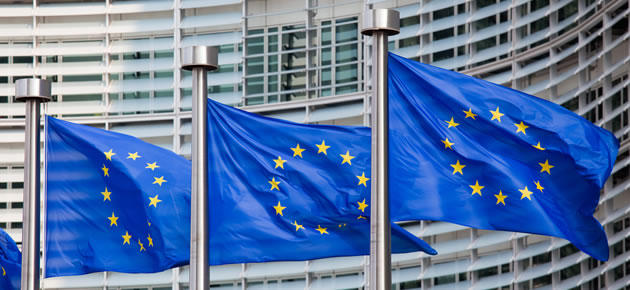Against the Pound (GBP), the Euro (EUR) was trading close to its lowest level in two years and against the Swiss Franc (CHF) its worst level in 20-months as more bad news emerged from the Eurozone and as concern continues to rise over the situation in Ukraine.
The single currency weakened after Markit Economics said that its gauge for Euro area manufacturing activity declined more than forecast last month as mounting geopolitical concerns and economic weakness weighed upon demand.
Germany got the session off to a negative start after the German Federal Statistics Office confirmed that the Eurozone is largest economy contracted by 0.2% in the second quarter of the year. Concerns are now growing that the nation could fall into recession before the end of the year.
There was also more negative news out of Italy after a report showed that the recession-hit nation’s factory sector contracted for the first time in over a year.
The Italian manufacturing PMI fell to 49.8 last month, down from the 51.9 in July. It is the first time since June 2013 that the index has fallen below the 50-point mark.
France too disappointed as data showed that the Eurozones second largest economy has seen the decline in its factory sector accelerate. The French manufacturing PMI fell to 46.9, well below the 50-point mark that divides expansion from contraction and was the lowest reading for 13 months.
Production data for the wider Eurozone also declined to its weakest level in 13 months, increasing expectations that the European Central Bank will introduce new monetary easing policies at this week’s policy meeting.
Employment in the manufacturing sector also increased adding to expectations that the Eurozone’s overall unemployment rate could rise back towards record highs.
‘The big-three nations of Germany, France and Italy all reported job losses, as did Greece. Staffing rose in Spain, the Netherlands, Austria and Ireland, but Ireland was the only nation to report a faster pace of hiring than in July,’ said Markit.
Further losses for the Euro were restrained slightly by some positive news out of Ireland. The country saw its manufacturing PMI improved at the best rate in 15 years. The rise is due to the strong demand for goods from the strong UK economy.
The UK also saw a dip in manufacturing activity as Markit said that the UK’s manufacturing purchasing managers’ index ticked down to a 14-month low of 52.5 in August, from a downwardly revised 54.8 in July.
Despite that report Sterling remained supported against the Euro and other major peers after it was aided by a separate piece of data which showed that UK mortgage lending increased to £2.30 billion in July, a figure which was better than the forecasted decline to £2 billion.
The EUR/GBP is forecast to experience volatility throughout the rest of the week as investors will keep a close eye on events in Ukraine and because of the wealth of economic data releases due for both currencies.
The Swiss Franc made gains after the Swiss National Bank renewed its pledge to maintain its cap on the Franc by buying unlimited amounts of foreign currency if needed. A move deemed as a positive by economists.
Euro Exchange Rate News
[table width=”100%” colwidth=”50|50|50|50|50″ colalign=”left|left|left|left|left”]
Currency, ,Currency,Rate ,
Euro, ,US Dollar,1.31376 ,
,US Dollar,1.31376 ,
Euro, ,British Pound,0.7906 ,
,British Pound,0.7906 ,
Euro, ,Swiss Franc,1.2066 ,
,Swiss Franc,1.2066 ,
Euro, ,Australian Dollar,1.4061 ,
,Australian Dollar,1.4061 ,
[/table]



